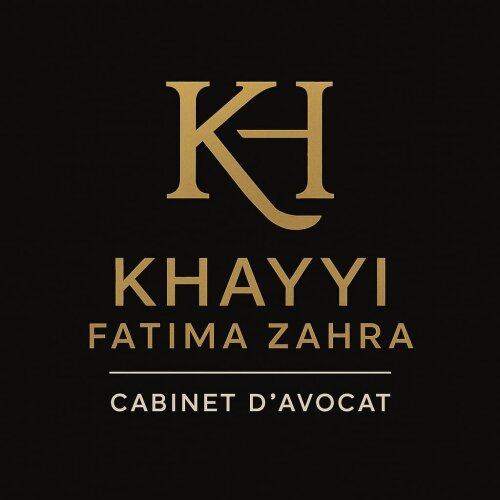Best Corporate Governance Lawyers in Rabat
Share your needs with us, get contacted by law firms.
Free. Takes 2 min.
List of the best lawyers in Rabat, Morocco
About Corporate Governance Law in Rabat, Morocco
Corporate governance refers to the framework of rules, practices, and processes by which companies are directed and controlled. In Rabat, Morocco, corporate governance emphasizes transparency, accountability, and the fair treatment of stakeholders. The laws and regulations governing corporate entities aim to ensure ethical business conduct and compliance with national and international best practices. These frameworks are especially relevant to public limited companies, listed entities, and organizations seeking to foster investor confidence, manage risks, and secure sustainable growth.
Why You May Need a Lawyer
There are several situations where legal assistance in corporate governance becomes essential in Rabat. Some of the most common include:
- Establishing or restructuring a company to comply with legal and regulatory requirements
- Drafting or amending articles of association, shareholder agreements, and internal policies
- Advising on the rights and duties of directors, board members, and shareholders
- Resolving conflicts between management, board, or shareholders
- Ensuring compliance with anti-corruption and anti-money laundering regulations
- Advising on mergers, acquisitions, or significant business transactions
- Responding to regulatory investigations or audits regarding corporate compliance
A corporate governance lawyer in Rabat assists in interpreting complex legislation, representing parties in disputes, and safeguarding the interests of all stakeholders involved.
Local Laws Overview
Corporate governance in Rabat is governed primarily by the Moroccan Commercial Code, the Law on Public Limited Companies (Sociétés Anonymes), and the Law on Limited Liability Companies (Sociétés à Responsabilité Limitée). Regulatory bodies such as the Moroccan Capital Market Authority (AMMC) and the Casablanca Stock Exchange set standards for listed companies. Key provisions relevant to corporate governance include:
- Requirements for board composition and the separation of powers between the board and management
- Obligations for annual general meetings and shareholder participation
- Disclosure and reporting requirements for financial transactions and company performance
- Duties of care, loyalty, and prudence owed by directors and officers
- Internal and external audit requirements to enhance transparency
- Mechanisms for minority shareholder protection
- Policies on conflicts of interest and related-party transactions
Complying with these requirements not only ensures legal protection but also builds trust with investors, clients, and regulatory authorities.
Frequently Asked Questions
What is corporate governance?
Corporate governance refers to the set of rules, practices, and processes by which a company is directed, controlled, and held to account. It includes the relationships among stakeholders, management, and the board of directors.
Is corporate governance legally required in all Moroccan companies?
Certain corporate governance principles are mandatory for most companies operating in Morocco, especially public limited companies and those listed on the stock exchange. Private companies are also strongly encouraged to follow governance best practices.
Who regulates corporate governance in Rabat?
Corporate governance is primarily regulated by Moroccan commercial laws, the Moroccan Capital Market Authority (AMMC), and company bylaws. Listed companies must also comply with additional stock exchange requirements.
What is the role of the board of directors?
The board of directors oversees the management of the company, makes key strategic decisions, and ensures compliance with laws and ethical standards. Board members are responsible for safeguarding the interests of shareholders and stakeholders.
What obligations do Moroccan companies have regarding shareholder rights?
Companies must ensure equal treatment of shareholders, provide timely disclosure of relevant information, and facilitate participation in annual general meetings. Shareholders also have the right to inspect company records and participate in major decisions.
Are there specific disclosure requirements for Moroccan companies?
Yes, companies are required to disclose financial statements, management reports, and significant transactions, especially if they are listed or have public accountability.
What are the penalties for non-compliance with corporate governance laws?
Penalties may include fines, restrictions on company operations, director disqualification, or in severe cases, criminal liability. Non-compliance also exposes companies to reputational risks.
Can foreign investors be shareholders or board members?
Yes, Moroccan law allows foreign individuals and entities to hold shares and sit on the boards of most types of Moroccan companies, subject to specific conditions in regulated sectors.
How can conflicts of interest be addressed?
Companies must adopt conflict-of-interest policies, require directors to declare relevant interests, and in certain cases, obtain shareholder approval for related-party transactions.
Do small and medium enterprises need to follow corporate governance principles?
While not always legally mandatory, adopting good corporate governance is recommended for all businesses, regardless of size, as it protects against risks, attracts investment, and improves operational efficiency.
Additional Resources
People seeking further information or support regarding corporate governance in Rabat, Morocco can turn to the following:
- Moroccan Capital Market Authority (AMMC)
- General Confederation of Moroccan Enterprises (CGEM)
- Ministry of Economy and Finance
- Regional commercial courts and legal assistance centers in Rabat
- International Finance Corporation (IFC) resources on corporate governance in Morocco
- Local chambers of commerce
- Professional associations for lawyers and corporate directors
Next Steps
If you need legal assistance for corporate governance matters in Rabat, consider the following steps:
- Identify the specific issue or type of support you need, whether compliance, drafting documents, or resolving disputes
- Gather relevant documents such as company bylaws, shareholder agreements, and correspondence with regulatory bodies
- Consult with a qualified corporate governance lawyer in Rabat who has experience with similar cases
- Prepare detailed questions for your legal advisor to ensure you understand your rights and obligations
- Follow your lawyer's guidance for compliance or dispute resolution, keeping records of all advice and actions taken
Taking early action and consulting with an experienced legal professional will help protect your interests and ensure your company complies with Moroccan regulations.
Lawzana helps you find the best lawyers and law firms in Rabat through a curated and pre-screened list of qualified legal professionals. Our platform offers rankings and detailed profiles of attorneys and law firms, allowing you to compare based on practice areas, including Corporate Governance, experience, and client feedback.
Each profile includes a description of the firm's areas of practice, client reviews, team members and partners, year of establishment, spoken languages, office locations, contact information, social media presence, and any published articles or resources. Most firms on our platform speak English and are experienced in both local and international legal matters.
Get a quote from top-rated law firms in Rabat, Morocco — quickly, securely, and without unnecessary hassle.
Disclaimer:
The information provided on this page is for general informational purposes only and does not constitute legal advice. While we strive to ensure the accuracy and relevance of the content, legal information may change over time, and interpretations of the law can vary. You should always consult with a qualified legal professional for advice specific to your situation.
We disclaim all liability for actions taken or not taken based on the content of this page. If you believe any information is incorrect or outdated, please contact us, and we will review and update it where appropriate.











